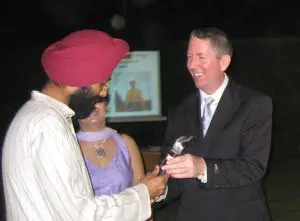When you’re not sure why the Contact Center reports you generate matter, or wonder if they even make sense, it’s time to take a step back.
This article is part of our Contact Center Management Series — a collection of articles that bring together practical guidance and insights to help Contact Centers run better and deliver stronger results.
“I think our Reports Person has lost the plot.”
That’s what one of our Participants said to the group after we had finished working through the Contact Center metrics topic in a recent workshop.
“They generate these complex reports that no one really understands. It’s a big relief to know I don’t have to just accept them simply because we’ve always done it this way.”

The problem isn’t just confusing reports. The real issue is that unclear reporting drives unclear behavior.
That share prompted another Participant in the course to display a report that was being used in their Center.
As we all stared at the screen trying to figure out what the report was meant to achieve, here is what she said:
“My predecessor who created this report had been in the role a long time.
So our big bosses and everyone in the team assumed that they were an ‘expert’. And that this report was industry standard or at least ‘right’ in some way.
Based on what I’ve learned in this course so far I’ve already emailed our CEO and told them that we’re going to redefine some of the terms we use and present our performance to them in a better report.
I got a very positive response to that!”
https://www.omnitouchinternational.com/15-quiz-questions-on-contact-center-operations-management/
I Had My Own Story
I shared the story of how, after delivering a global workshop on-site with a Client, the reports person spent nearly two hours explaining one metric that they created and used to track performance in their Center.
Even with photos of the whiteboard, I still can’t make sense of it — and neither could anyone else at the company.
The calculations presented may have been highly accurate. And may have served a higher level purpose.
But complexity in place of clarity is never a good idea.
 If you’re running a Contact Center or Customer Experience group and your folks need a PhD to understand a metric that’s supposed to guide their behavior, you’ve already got a problem.
If you’re running a Contact Center or Customer Experience group and your folks need a PhD to understand a metric that’s supposed to guide their behavior, you’ve already got a problem.
Because the very people who are supposed to make it ‘happen’ can’t explain it.Which means they can’t understand it either.
Lesson: Clarity matters.
Sometimes People Who Are New to the Contact Center Have an Advantage Over Those with Years of Experience
 I sometimes find that people who are new to the industry have an easier time to stand up and ask, “Why do we do this? What is this report supposed to help us with? Is it actually helping?”
I sometimes find that people who are new to the industry have an easier time to stand up and ask, “Why do we do this? What is this report supposed to help us with? Is it actually helping?”
Experience is great.
But be cautious about assuming that years of experience – and doing the same thing over and over – is a reliable indicator that we’re doing the right thing.
https://www.omnitouchinternational.com/the-london-tube-map-and-cx-strategy-a-story
Contact Center Reports Are More Than Just Reports
Reports aren’t just numbers.
They tell people what matters, guide behavior, and shape culture. That’s why it’s worth challenging them from time to time — and making sure clarity wins over complexity.
Thank you for reading!
I regularly share stories, strategies, and insights from our work across Contact Centers, Customer Service, and Customer Experience. If this resonates, I’d love to stay connected.
You can drop me a line anytime, or subscribe via our website.
Daniel Ord
[email protected]
www.omnitouchinternational.com



